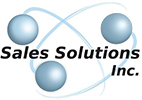
Safety is of paramount importance in the construction industry, where workers face various risks and hazards daily. To ensure a secure work environment and compliance with safety standards, traditional on-site safety audits have been the norm. However, the advent of technology has brought about a revolutionary approach – remote safety auditing. In this blog post, we will explore how remote safety auditing is transforming the construction industry, enhancing safety measures, and improving overall efficiency.
- Embracing Technological Advancements
Remote safety auditing in the construction industry harnesses the power of cutting-edge technology to carry out safety evaluations and inspections. High-resolution cameras, drones, and sensors enable real-time monitoring of construction sites, allowing auditors to observe activities and identify potential risks from a remote location. This technology also facilitates the collection of accurate data and documentation, which can be accessed and analyzed remotely, ensuring compliance with safety regulations.
- Overcoming Geographical Limitations
One of the significant advantages of remote safety auditing is its ability to overcome geographical limitations. Construction projects are often spread across vast areas, making it challenging and time-consuming for auditors to visit every site. With remote auditing, experts can conduct comprehensive inspections regardless of their physical location. This allows for quicker response times, as auditors can remotely assess multiple sites simultaneously, ensuring consistent safety standards across all projects.
- Cost and Time Efficiency
Remote safety auditing significantly reduces costs and saves time for construction companies. Traditional on-site audits involve travel expenses, accommodation, and potential disruptions to ongoing work. Remote audits eliminate these expenses and allow auditors to focus solely on evaluating safety measures. Moreover, with real-time access to digital documentation and data, auditors can swiftly identify areas that require improvement, ensuring prompt action is taken to mitigate risks and maintain a safe working environment.
- Enhanced Collaboration and Communication
Remote safety auditing fosters improved collaboration and communication between auditors, project managers, and on-site personnel. Through video conferencing and virtual communication tools, auditors can interact with construction teams, discuss safety concerns, and provide real-time guidance. This seamless exchange of information promotes better understanding and implementation of safety protocols, leading to enhanced safety practices across construction projects.
- Continuous Monitoring and Risk Prevention
The ability to remotely monitor construction sites on an ongoing basis is a significant advantage of remote safety auditing. With advanced technology such as drones and sensors, auditors can conduct periodic inspections and identify potential hazards before they escalate into accidents or injuries. Continuous monitoring enables proactive risk prevention, ensuring that safety protocols are consistently upheld throughout the project lifecycle.
Conclusion
Remote safety auditing is revolutionizing the construction industry, offering numerous benefits to both auditors and construction companies. By leveraging technology and overcoming geographical limitations, remote auditing enhances safety measures, reduces costs, and improves overall efficiency. The ability to collaborate seamlessly, analyze data remotely, and conduct continuous monitoring empowers construction projects to maintain a safe working environment, safeguard workers’ well-being, and ensure compliance with safety regulations. As the construction industry embraces digital transformation, remote safety auditing is a game-changer that will shape the future of safety practices in construction.

0 Comments